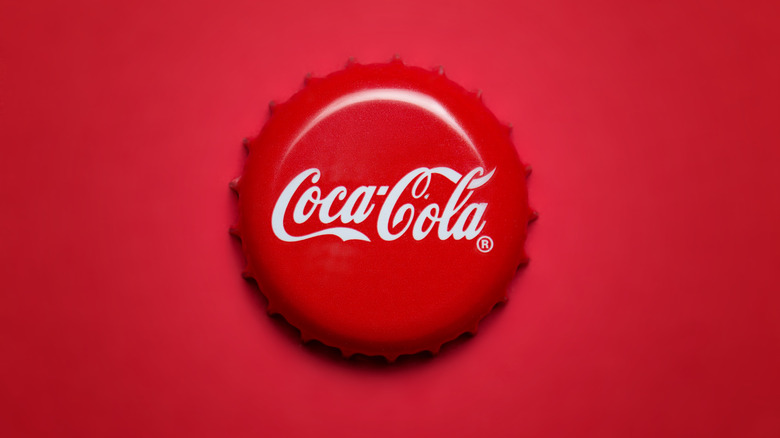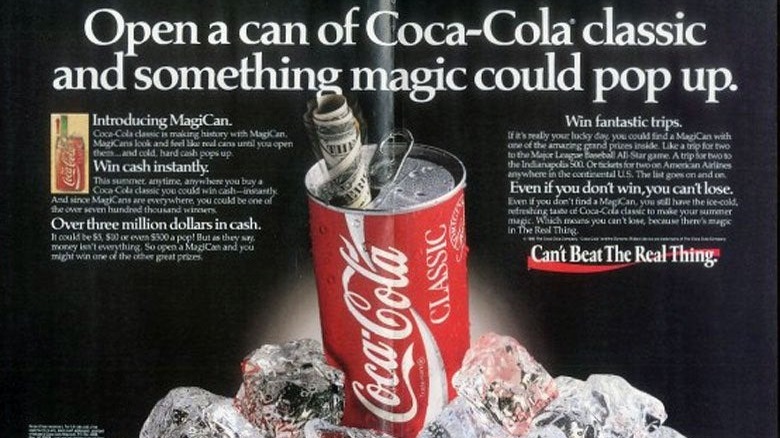This Cash-Dispensing Coca-Cola Promotion Went Horribly Wrong
Who doesn't love a good marketing campaign? From McDonald's "I'm Lovin' It" jingle to the Marlboro Man, there's nothing quite like an old-fashioned promotion to get you caving something as simple as Big Macs and cigarettes. While a good marketing campaign makes you want the product, though — regardless of whether it's good for you or not — a great one gets you excited not just for the product, but for the promotion itself.
Holiday promotions, loyalty points, and free giveaways are just some of the top marketing and promotion gimmicks that gets customers flowing in for your products. That's why McDonald's has their Monopoly game, Sprite has their famous Sprite Cranberry around Thanksgiving and Christmas ... and what would a good sales campaign be without mentioning Black Friday?
As wildly successful as promotions are, though, the 20th century had more than a handful of promos and marketing stunts that wound up backfiring pretty spectacularly. For instance, how could McDonalds have known that, when they promised a free item for every medal won by the Americans in the 1984 Olympics, the Communist teams would boycott the Games, letting the United States win medal after medal and leave McDonalds practically giving away free food for weeks (via Better Marketing)? Clothing retailer GAP, meanwhile, tried to change to their logo in 2010, and the result was met with such disdain they changed back to the old logo not even a week later (via The Branding Journal).
Then there's Coca-Cola, whose marketing stunt back in the 1990s ended up backfiring on them, too — and this one was designed to literally give out free money!
The failure of Coke's "MagiCan"
Way back in the 1990s, where the marketing stunts tried to be as radical as the beat-boxing youth of the day, Coca-Cola was promoting the band New Kids on the Block for their "Magic Summer Tour", alongside "the MagiCan" (via the New York Times). The gimmick of the MagiCan was that when one opened the tab as you normally would a soda can, a spring-loaded mechanism would be triggered in the can's interior, ejecting a prize of cash or vouchers to appear "like magic." The MagiCans were designed to look just like average Coke cans and were even filled with small amounts of chlorinated water to make it seem like they were filled with Coca-Cola (via The Die Line), forcing those who sought their fortunes in a soda can to take to the markets for a chance to strike it rich.
The MagiCan, unfortunately, wasn't the profit magician Coke thought it would be. Customers complained about broken prize mechanisms (which Coke had neglected to adequately test before shipping) and foul-smelling liquid — the leaking, stale chlorinated water, which had been mixed with ammonium sulfate to prevent customers from drinking it. According to hearsay at the time, a young boy had drunk the chlorinated water and was allegedly rushed to the hospital by his worried parents. Although this tale eventually got embellished by many sources, Snopes confirms that, in reality, the boy was perfectly fine (and had actually won $5 dollars from his MagiCan, as well as additional coupons). Nonetheless, the panic and resulting gossip forced Coke to called it quits on the MagiCan promo — only three weeks into the promotion, and $100 million sunk into it.

